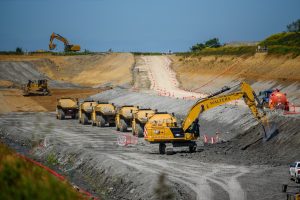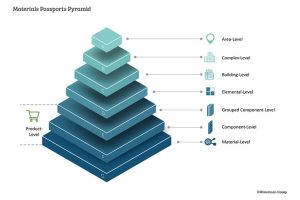There has been plenty of talk about the UK’s planning system, and this will no doubt continue as we reflect on the Autumn Statement, fuelled by the National Infrastructure Commission’s (NIC) recently published assessment, which calls for a significant increase in infrastructure investment across the UK.
Quite rightly, the NIC…
Latest Business News
There should be more collaboration between non-destructive testing and civil engineering
Non-destructive testing (NDT) is often overlooked in day-to-day life but underpins much of the modern world. From the train you take to work, to the power station generating the electricity for your morning cup of coffee or the planes that fly you to your holiday destination, there is a group…
HS2 reveals digital innovations for efficient earthmoving and fresh concrete testing during transport
Engineers on High Speed 2 (HS2) have revealed innovations that utilise on-machine technologies to improve earthmoving processes and allow real-time digital concrete testing during transportation.
The efficient earthmoving technology has been utilised in a partnership between HS2 main contractor EKFB (Eiffage, Kier, Ferrovial, Bam) and equipment supplier Finning and has reportedly…
Without political certainty and commitment we won’t meet our infrastructure and net zero goals
Writing in New Civil Engineer in August, I made the case for why we need to keep infrastructure apart from politics – lifting it up above political cycles to reduce uncertainty and better enable successful delivery and positive outcomes for society.
Since August, events have served only to strengthen this…
Structural engineers are living up to their responsibility to future global prosperity
As net zero 2050 deadlines and their interim 2030 targets draw closer, the global structural engineering community is stepping up to meet the challenge of decarbonising the built environment.
The professional parameters for practitioners have evolved over the past two decades, and it's no longer satisfactory to achieve structural integrity…
Waterman launches Materials Passports Framework to unlock material reuse in construction
Waterman Group has released its Materials Passports Framework to standardise the construction industry’s approach to documenting and managing materials through their lifecycle.
Touted as “a major step forward in helping the industry tackle its carbon reduction commitments”, the framework provides the sector with a guide to creating a comprehensive database of…
Four ways technology can help you comply with the Building Safety Act
We’re now seeing the Building Safety Act move from plans to action – an event no longer merely on the horizon, but instead looming large as a focus for all involved in the built environment.
The 1 October deadline to register with the new Building Safety Regulator has now passed,…
Businesses including Mace and Arcadis urge chancellor to commit to long-term TfL capital funding
A coalition of London businesses has written to the chancellor urging him to commit to a capital funding settlement with Transport for London (TfL) in order to “keep the capital moving, so that it can drive growth, investment and job creation that benefits the UK as a whole”.
The London transport…
Understanding distribution of social impacts can deliver better and more cost-effective projects
The impact of transport projects on different sections of society has come under increased scrutiny over the past 10 years as government looks to measure social impact alongside more conventional financial value metrics.
A method to do just that already exists, but it is often only applied later in projects.…
A global carbon tax could be an ethical solution to the world’s problems
The International Monetary Fund (IMF) recently warned governments to expect up to 50% rise of their public debt if their investments to achieve net zero are not backed by a carbon tax.
According to the IMF, today nearly 50 countries have carbon pricing schemes in place. Some countries applied an…
 New Civil Engineer Civil engineering and construction news and jobs from New Civil Engineer
New Civil Engineer Civil engineering and construction news and jobs from New Civil Engineer









